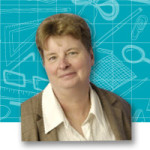Sue Williamson, SSAT CEO, writes…
A few years ago my partner, John, and I were on a long weekend break in St Petersburg. To our surprise, the travel company gave us a driver and tour guide to show us the city. Both were taken aback when John spoke to them in Russian and they complimented him on his accent. “Where did you learn Russian – you must have had a good teacher?” John vaguely replied “At school.”
John’s school was a very special one – the Joint Services School for Linguists (JSSL). It was founded in 1951 by the British armed services to provide language training, principally in Russian, and largely to selected conscripts undergoing National Service.
John had left Alford Grammar School and was conscripted into the Royal Lincolnshire regiment. He had a few months of intense training in Warwickshire and Wales in preparation for going to Korea. The training brutalised him and left him with little interest in reading and he felt cut off from the civilised world. He was on embarkation leave when he was summoned to the War Office and told that this new school was being set up. Did he want to go and learn Russian? It was hardly a difficult decision.
He was part of the first intake and joined soldiers from around the UK in their base camp in Bodmin. His tutors were all Russian – a mixture of White Russian emigres and carefully vetted Soviet defectors. One of the tutors had been an interpreter at the Nuremburg war crimes trial and recounted the story of his mother as a young girl playing leapfrog over the chairs in the dining room of the Winter Palace with the last Tsarina of Russia.
These tutors inspired John with their stories of their mother country. The language teaching was of a somewhat technical nature, but it was greatly enhanced by the links to Russian culture, especially literature and music.. Each week there was a test and every month a major examination – the incentive to pass was considerable. If you failed a major you were returned to your unit and in all likelihood sent to Korea. Sadly, some did fail. The successful ones graduated and went off to places around the world to spy or listen in to Russian military communications. John joined MI8 and spent the rest of his national service listening in to Russian communications.
In Bodmin, close friendships were formed and they continue today. The first intake meet every two years and they are meeting in Oxford next month. Numbers are dwindling, but all still talk of the inspiration of their tutors and the impact the training had on the rest of their lives. Many famous people followed in their footsteps: Eddie George, Michael Frayn, Alan Bennett, Dennis Potter and Sir Peter Hall. Alan Bennett describes Russian as a “most beautiful language.” Many of the young national servicemen used their Russian language in their civilian careers.
I have been surprised that there has not been any real debate around languages in the school curriculum. We seem to accept that as a nation we are not good at language learning and/or the world speaks English, so why bother? There has also been little discussion on which languages we should offer young people today? I am a great admirer of the work Katharine Carruthers is doing with the IOE’s Confucius Institute and the teaching of mandarin.
The world has changed since the days of national service, but surely we should know how we might inspire today’s young people with a love of language and culture from other countries?
